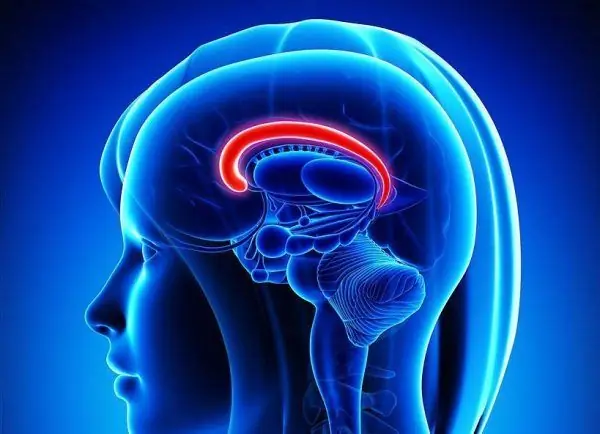
Table of contents:
- Author Bailey Albertson albertson@usefultipsdiy.com.
- Public 2023-12-17 12:53.
- Last modified 2025-01-23 12:41.
Why People Don't Remember Dreams and How You Can Preserve Your Dreams

During a night's rest, people do not plunge into oblivion, the brain shows us various dreams, during which you can live a whole life. Unfortunately, after waking up, many night dreams are forgotten. Why is this happening and how to fix it?
Why People Don't Remember Dreams
The reason why people cannot remember their dreams lies in the peculiarities of brain activity. Two areas of the brain are responsible for memorizing words: the hippocampus and the neocortex. If these areas are regularly and quickly synchronized, the person will remember his dream the next morning.
Scientists also know that dreams only appear during REM sleep. But there is an interesting feature: it is during this phase that synchronization between the hippocampus and the neocortex occurs less frequently. It turns out that the brain itself prevents a person from remembering dreams. Scientists have not yet found the exact cause. Perhaps in this way the body is trying to protect us from unnecessary information.
Not all humans have the same activity in the hippocampus and neocortex. Those in whom these areas of the brain function more strongly remember their nightly dreams more often. Another group of people almost never remember dreams - their brain areas are less synchronized.
Sleep quality also affects the ability to remember night dreams. If a person sleeps in stuffiness or noise, often wakes up, then the fast phase of sleep is disrupted (since it is during this phase that people are more susceptible to external influences). Even if a person sees dreams, he is unlikely to remember them in the morning.

The hippocampus is responsible for remembering dreams
Why do you need to remember dreams
Memorizing dreams can be very helpful. Firstly, night dreams affect the state of a person after waking up. If he saw a nightmare at night, then it is unlikely that he will feel happy during the day. And vice versa - pleasant dreams give a positive charge for the whole day. Memorizing your dreams will help you understand why you experience certain emotions during the day.
Secondly, at night the brain processes the information received during the day and turns it into dreams. Night dreams can show the psychological state of a person, make it clear what he is afraid of and what he wants, what occupies his thoughts. Analysis of dreams helps in psychological practice and even in cases when you want to understand yourself.

Poor sleep can ruin your mood all day
How to remember dreams
Even those who do not usually remember dreams can train themselves to keep them in memory. The first thing to think about is sleeping conditions. Sleep in darkness and silence, keep the air in the room fresh. Try to get enough sleep and get up without an alarm clock, as it dramatically jerks you out of sleep, preventing you from remembering anything.
Going to bed in the evening, set yourself up to remember the dream. When you wake up in the morning, take your time to get up. Lie down, feeling the smooth transition between sleep and wakefulness. Try to grasp the dream in your head and remember the details. After waking up, be sure to recite the dream in your head or tell someone.
If you are afraid to forget the dream, then put a notebook and pen next to the bed. Immediately after waking up, write down everything that is stored in your head. If you wake up several times during the night, then do not be lazy and take notes at this time, since dreams are usually remembered better in the middle of the night. You can even do artificial awakenings, such as drinking a lot of water before bed.

Record your dreams to remember them better
Many people do not remember night dreams due to the way the brain works. Fortunately, you can train yourself to memorize. There is no need to be upset if it didn't work out the first time: a little practice, and you will definitely remember many of your dreams.
Recommended:
Why Does A Ginger Cat Or A Cat Dream From A Dream Book: A Description Of Various Dreams, Modern And Alternative Interpretations Of Dreams

Why does a red cat dream: an explanation of popular dream books. Interpretation of the appearance of the animal, its behavior. Interpretations for men and women
Why Does A White Cat Or A Cat Dream From A Dream Book: A Description Of Various Dreams, Modern And Alternative Interpretations Of Dreams

Why is a white cat or a cat dreaming from a dream book: a description of various dreams, modern and alternative interpretations according to different dream books. Reviews
Why You Can't Sleep With Your Phone And Carry It In Your Pocket, Including For Men

Harm from the phone in your pocket. Is it possible to sleep with the phone. Effects of radiation on health
Why You Can't Why You Can't Wash Floors On Friday: Signs And Facts

Why you can't wash floors on Friday: signs and superstitions. The opinion of the mystics and Orthodoxy
Why You Can't Dye Your Hair During Your Period: Signs And Facts

Why you can't dye your hair during your period. What are the consequences of this procedure
